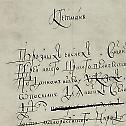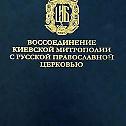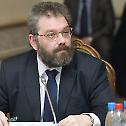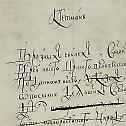Science
Reunification Of The Kiev Metropolitanate With The Russian Church: How Did It Happen And Why
16. March 2020 - 12:29The Orthodox Encyclopedia Religious Scientific Center has published a unique collection of works entitled, The Reunification of the Kiev Metropolitanate with the Russian Orthodox Church. 1676–1687. Research and Documents. It includes many new important archival documents that contain additional information on the circumstances of this reunification. We are discussing the immediacy of this book and its irrefutable conclusions with Sergei Leonidovich Kravets, the director of Orthodox Encyclopedia Center.
Metropolitan Hilarion of Volkolamsk: “An Outline of Orthodox Faith”
19. February 2020 - 9:44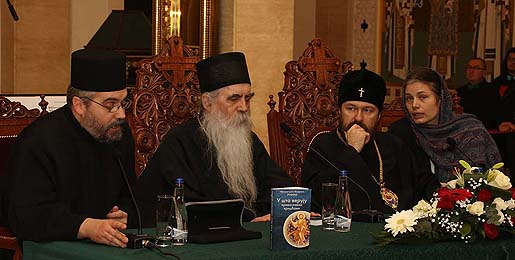 A presentation of the book “An Outline of Orthodox Faith” written by Metropolitan Hilarion of Volkolamsk (Alfeev) took place in the crypt of the Church of St. Sava, Belgrade, on February 17, 2020.
A presentation of the book “An Outline of Orthodox Faith” written by Metropolitan Hilarion of Volkolamsk (Alfeev) took place in the crypt of the Church of St. Sava, Belgrade, on February 17, 2020.
Contemporary Catechism, written on three hundred pages (with photographs) divided into 66 sections under the title “An Outline of Orthodox Faith” by Metropolitan Hilarion of Volkolamsk and in the edition of the Representation of Serbian Patriarchate in Moscow and the publishing house "Pravoslavac" from Sabac, was presented in the crypt of the Church of St. Sava in the Vracar district of Belgrade, on February 17, 2020. The book was translated from Russian by Bishop Anthonije (Pantelic) of Moravica, Vicar Bishop of the Serbian Patriarch.
World Cancer Day: A leading international awareness day
5. February 2020 - 12:08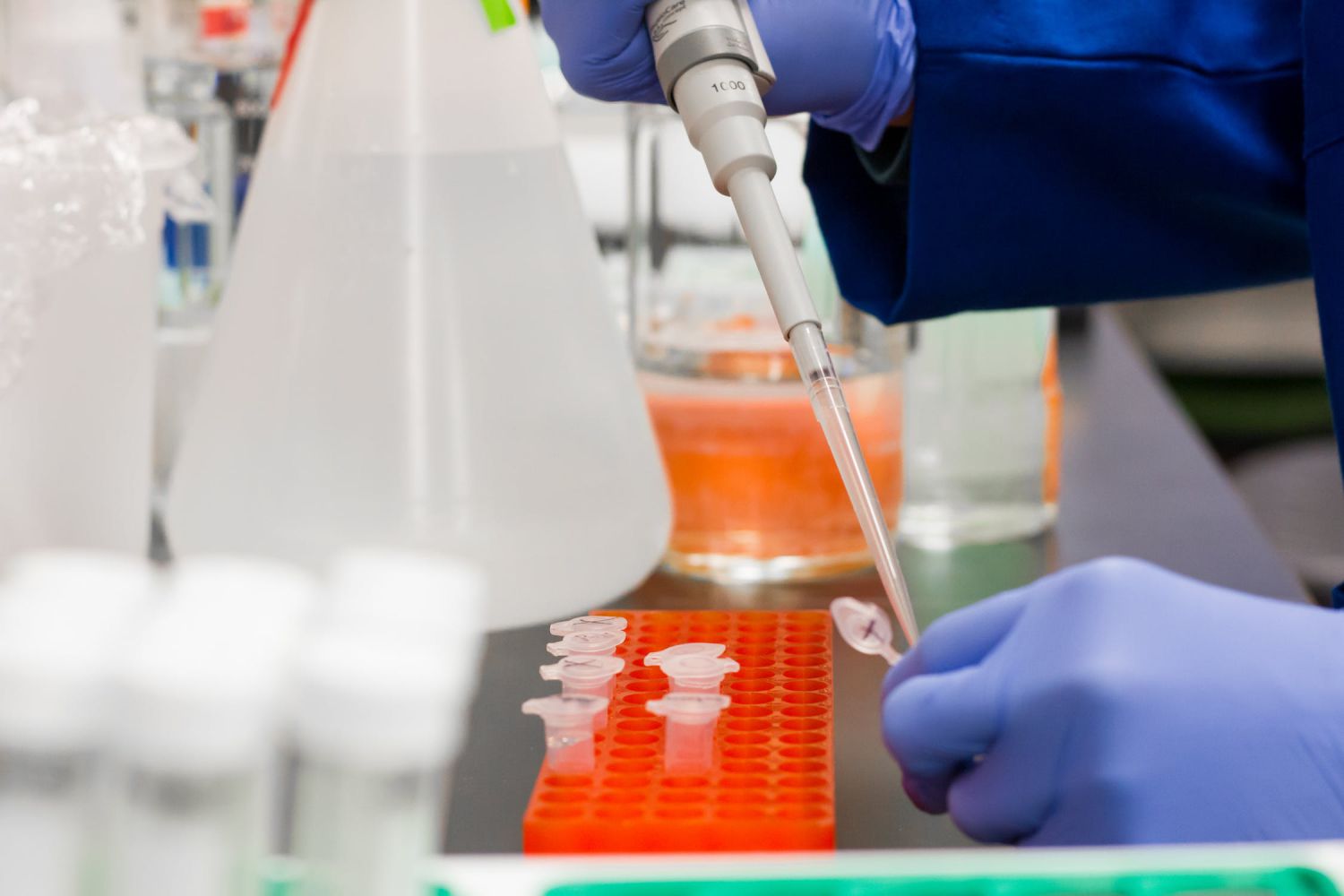 At the start of the millennium, 4 February was declared World Cancer Day. It began with six cancer experts who convened in Paris in 1999. With the year 2000 imminent, the group was determined that the global challenge of cancer would not be forgotten in the new century.
At the start of the millennium, 4 February was declared World Cancer Day. It began with six cancer experts who convened in Paris in 1999. With the year 2000 imminent, the group was determined that the global challenge of cancer would not be forgotten in the new century.
Together, the six leaders drafted a Charter that outlined a vision for addressing the impact of cancer on “human life, human suffering and on the productivity of nations”.
His Holiness Catholicos-Patriarch Ilia’s Prayer on Nativity for the Coming Year
17. January 2020 - 14:10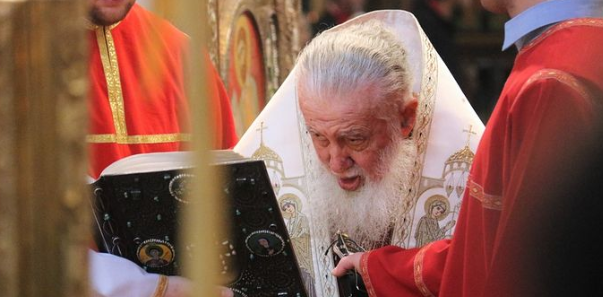 For the first time, we are seeing His Holiness Ilia’s Nativity Epistle for this year, which is not only profound Orthodox teaching but a powerful prayer for all. Before the end of Christmastide, we would like to present it to our readers.
For the first time, we are seeing His Holiness Ilia’s Nativity Epistle for this year, which is not only profound Orthodox teaching but a powerful prayer for all. Before the end of Christmastide, we would like to present it to our readers.
Most Eminent Hierarchs, Reverend Fathers, Deacons, Monks and Nuns, Authorities of our Government, members of the Holy Orthodox Church of Georgia, Residents of Iberia and our compatriots who are now living in the countries beyond our land.
St. Basil the Great, Archbishop of Cæsarea in Cappadocia
13. January 2020 - 16:26![]() Saint Basil the Great, Archbishop of Caesarea in Cappadocia, “belongs not to the Church of Caesarea alone, nor merely to his own time, nor was he of benefit only to his own kinsmen, but rather to all lands and cities worldwide, and to all people he brought and still brings benefit, and for Christians he always was and will be a most salvific teacher.” Thus spoke Saint Basil’s contemporary, Saint Amphilochius, Bishop of Iconium.
Saint Basil the Great, Archbishop of Caesarea in Cappadocia, “belongs not to the Church of Caesarea alone, nor merely to his own time, nor was he of benefit only to his own kinsmen, but rather to all lands and cities worldwide, and to all people he brought and still brings benefit, and for Christians he always was and will be a most salvific teacher.” Thus spoke Saint Basil’s contemporary, Saint Amphilochius, Bishop of Iconium.
Saint Basil was born in the year 330 at Caesarea, the administrative center of Cappadocia. He was of illustrious lineage, famed for its eminence and wealth, and zealous for the Christian Faith. The saint’s grandfather and grandmother on his father’s side had to hide in the forests of Pontus for seven years during the persecution under Diocletian.
The Holy Protomartyr Stephen the Archdeacon
9. January 2020 - 0:14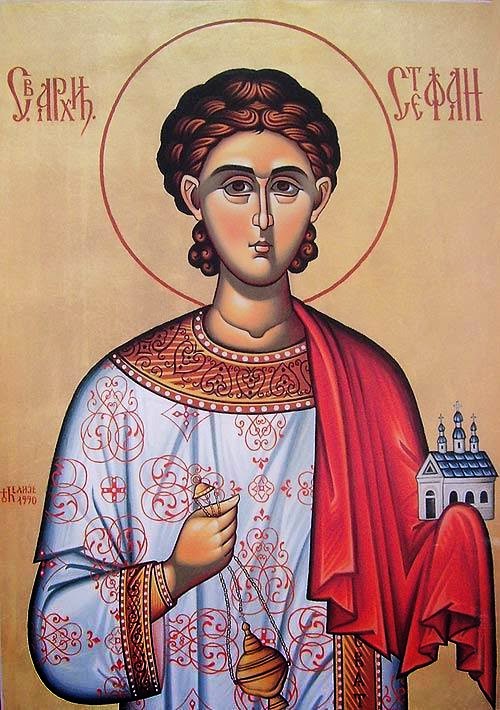 Stephen was a kinsman of the Apostle Paul and one of those Jews who lived in the Hellenic provinces. Stephen was the first of the seven deacons whom the holy apostles ordained and appointed to the service of assisting the poor in Jerusalem. For this, he is called the archdeacon.
Stephen was a kinsman of the Apostle Paul and one of those Jews who lived in the Hellenic provinces. Stephen was the first of the seven deacons whom the holy apostles ordained and appointed to the service of assisting the poor in Jerusalem. For this, he is called the archdeacon.
By the power of his faith, Stephen worked great miracles among the people. The wicked Jews disputed with him, but they were always defeated by his wisdom and the power of the Spirit, Who acted through him. Then the shameful Jews, accustomed to calumnies and slander, incited the people and the elders of the people against the innocent Stephen, slandering him as though he had blasphemed against God and against Moses. False witnesses were quickly found who confirmed this. Stephen then stood before the people, and all saw his face as it had been the face of an angel (Acts 6:15), that is, his face was illumined with the light of grace as was once the face of Moses when he spoke with God. Stephen opened his mouth and enumerated the many good works and miracles that God had performed in the past for the people of Israel, as well as the many crimes and opposition to God on the part of this people. He especially rebuked them for the killing of Christ the Lord, calling them betrayers and murderers (Acts 7:52). And while they gnashed their teeth, Stephen beheld and saw the heavens open and the glory of God. That which he saw, he declared to the Jews: Behold, I see the heavens opened and the Son of Man standing on the right hand of God! (Acts 7:56). Then the malicious men took him outside the city and stoned him to death. Among his persecutors was his kinsman Saul, later the Apostle Paul.

